Heart-inflammation risk from Pfizer COVID vaccine is very low
Two studies from Israel quantify the risk of myocarditis following the Pfizer–BioNTech shot, with one suggesting the chance of developing the condition is about one in 50,000.
By Smriti Mallapaty
10/08/2021
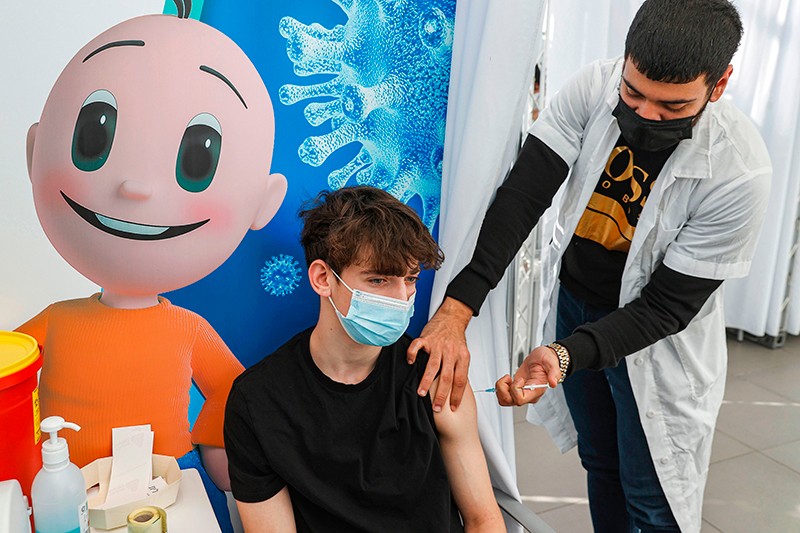
The risk of developing inflammation of the heart muscle after receiving the Pfizer–BioNTech COVID-19 vaccine is very low, according to two large studies from Israel. The studies indicate that teenage boys and young men are most at risk of developing the condition, known as myocarditis. But even in this group, the vast majority of cases are mild and people recover quickly.
In one study1 of more than 5 million people who had received the Pfizer–BioNTech COVID-19 vaccine, 136 developed myocarditis. The other study2, of more than 2.5 million people who received the shot, identified just 54 cases of myocarditis.
Ran Balicer, a co-author of the second study and an epidemiologist at Israel’s largest health-care provider, Clalit Health Services in Tel Aviv, hopes the findings will “help alleviate some of the worries around the risks associated with vaccination in the younger age groups and put an appropriate clinical context to them”.
Myocarditis concerns have fueled anti-vaccine sentiments and influenced decisions about giving messenger RNA vaccines to children in the United Kingdom, Denmark and Sweden.
Massive survey
The studies, published this week in The New England Journal of Medicine, analysed data from Israeli residents aged 16 and older who received at least one dose of the COVID-19 vaccine made by drug company Pfizer in New York City and biotechnology firm BioNTech in Mainz, Germany, between December 2020 and May 2021.
One of the studies1 was a nationwide analysis, in which cardiologists closely reviewed the records of people hospitalized with suspected myocarditis. “We dissected every case,” says co-author Dror Mevorach, a physician-scientist at Hadassah Medical Center in Jerusalem.
The researchers identified 136 cases of myocarditis reported within one month of having a Pfizer shot. Of these, 95% were mild, but one person died.
The researchers found that up to 4 in 100,000 men developed myocarditis after receiving their second dose of the Pfizer–BioNTech vaccine, but the incidence for women was fewer than one in 100,000. Overall, fully vaccinated individuals were about twice as likely to be diagnosed with myocarditis as were unvaccinated individuals.
But young men aged 16–19 had a 15 in 100,000 chance of developing myocarditis after their second shot. The vast majority of these cases were mild and eventually resolved. The researchers also found that myocarditis was more likely to develop after the second vaccine dose than the first.
The second study2 observed similar trends, using a slightly different approach. Balicer and his co-authors analysed data from some 2.5 million people insured by Clalit Health Services, and asked cardiologists to review hospital records. They found that 2 out of every 100,000 people who received at least one Pfizer shot developed myocarditis, and that the incidence increased to almost 11 out of 100,000 among men aged 16–29. Overall, 76% of the cases involved mild symptoms and 22% involved intermediate symptoms.
In line with other studies
The results are “in sync with what we have seen before”, says Fiona Russell, a paediatrician and infectious-diseases epidemiologist at the University of Melbourne in Australia.
A study3 of US military personnel by Leslie Cooper, a cardiologist at Mayo Clinic in Jacksonville, Florida, and his colleagues, published in June, identified 23 cases of myocarditis in men aged 20–51 who had received an mRNA vaccine, working out to 8 cases per 100,000. All of the men recovered. The same month, the US Centers for Disease Control and Prevention (CDC) reported that it had identified 5 cases out of 100,000 in men aged 18–24, rising to 6 cases per 100,000 in male adolescents aged 12–17. Most people who developed myocarditis recovered quickly, according to the CDC.
The fact that the risk observed in young men in Israel is slightly bigger than that seen in the United States could be attributed to the active surveillance effort of the Israeli studies, which would have caught more cases, says Mevorach.
He says the new studies clearly show that the benefits of vaccination against COVID-19 outweigh the risks of people aged 16 and older developing myocarditis. Previous research4 co-authored by Balicer found that in this age group, becoming infected with SARS-CoV-2 made a person 18 times more likely to develop myocarditis — a much more significant risk than is observed following vaccination.
The comparison is less clear for younger age groups, says Russell — meaning that their risk of developing myocarditis might be increased more by the vaccine than by the disease, particularly because children rarely develop severe COVID-19.
More data needed
Biykem Bozkurt, a cardiologist at Baylor College of Medicine in Houston, Texas, says that more data are needed to compare the risks of myocarditis between vaccinated and unvaccinated people under 12. But Bozkurt says it’s possible that the increased risk of myocarditis “is clustered around puberty and adolescence” in young men, which would mean a lower risk in children under 12.
The mechanism by which myocarditis develops has not yet been studied in detail, but previous animal studies5 suggest that testosterone could aggravate the inflammatory response, says Cooper.
It is important that the link between myocarditis and mRNA vaccines in young men is investigated further, says Russell.
Because of concerns around the rare side effect, the UK government decided in September that it would not recommend that all 12–15-year-olds get vaccinated. Earlier this week, Denmark announced that it would stop administering the mRNA vaccine developed by Moderna in Cambridge, Massachusetts, to those aged 12–18, while Sweden took the same action for 12–20-year-olds. Both continue to offer the Pfizer shot to those age groups.
Regulatory bodies in regions including the European Union at large and Australia continue to recommend both vaccines for children aged 12 and older. Pfizer has said its vaccine is safe for children aged five and older, and has shared its clinical-trial data with the US Food and Drug Administration, with plans to formally request emergency-use authorization for that age group in the coming weeks.
References
- Mevorach, D. et al. N. Engl. J. Med. https://doi.org/10.1056/NEJMoa2109730 (2021).
- Witberg, G. et al. N. Engl. J. Med. https://doi.org/10.1056/NEJMoa2110737 (2021).
- Montgomery, J. et al. JAMA Cardiol. https://doi.org/10.1001/jamacardio.2021.2833 (2021).
- Barda, N. et al. N. Engl. J. Med. 385, 1078–1090 (2021).
- Coronado, M. J. et al. Am. J. Physiol. Heart Circ. Physiol. 302, H1726–H1736 (2012).
诚招美国和加拿大法律服务代理
因公司发展需要,诚招美国和加拿大法律服务代理。
要求:
懂英语、或西班牙语、或法语。
能合法工作有社安号或工号。
无需改行, 可以兼职。
大学生和有销售经验优先考虑。
自雇生意公司发美国报税1099,加拿大T4A
有意了解详情, 请扫码加微信, 非诚勿扰!

Avoid strenuous activity for 2 weeks after Covid-19 vaccine jabs, instead of 1 week, says expert panel
By Syarafana Shafeeq
9/19/2021
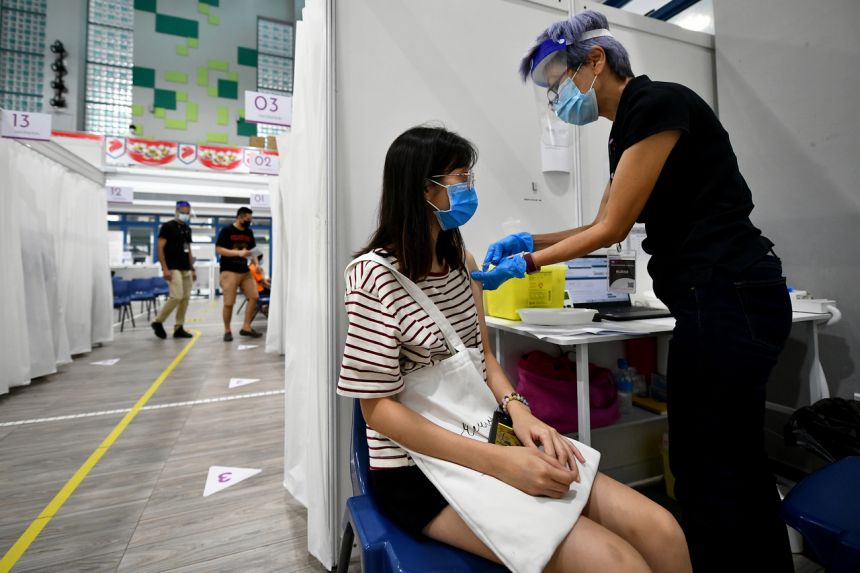
SINGAPORE – Those who have just received their Covid-19 vaccine shots should avoid strenuous exercise such as lifting heavy weights for two weeks instead of one, particularly if they are young, the Expert Committee on Covid-19 Vaccination said on Thursday (Sept 16).
Persons who experienced mild allergic reactions after they received a dose of an mRNA vaccine may now be eligible for their second and subsequent doses of the same vaccine, the committee added in its updated advisory.
The Ministry of Health said the expert committee has made these recommendations having reviewed further vaccine safety data.
Local and overseas data continue to show a small risk of developing myocarditis or pericarditis, with cases predominantly occurring in younger persons after their second dose, said the expert committee. Myocarditis is an inflammation of the heart muscle, while pericarditis is an inflammation of the heart membrane.
Both conditions occur more often in men than in women.
“While most of the cases reported previously had occurred within one week of vaccination, the Health Sciences Authority (HSA) had also started to receive reports of some cases that occurred within the second week of vaccination,” it said.
“Myocarditis and pericarditis after vaccination are rare, but occurrence tends to be higher in young males aged 30 years and below.”
This is why it is now advising that those who have just been vaccinated avoid strenuous physical activity for two weeks, it said.
“During this time, they should seek medical attention promptly if they develop chest pain, shortness of breath or palpitations.”
People who developed mild skin reactions after they received their first dose of an mRNA vaccine and were deemed ineligible for further shots can now take their second dose, given additional international evidence around the safety of Covid-19 mRNA vaccines, said the expert committee.
They include those who had mild skin reactions more than four hours after vaccination but did not have other symptoms; those who had non-specific skin symptoms such as itching without a rash or a red patch beyond the injection site; and those who experienced a flare-up of an underlying skin condition such as psoriasis or eczema.
Health Minister Ong Ye Kung said in Parliament on Tuesday that about 7,100 people had allergic reactions after taking their first dose of a Covid-19 mRNA vaccine.
They had previously been invited to complete their vaccination with two doses of Sinovac-CoronaVac under a dedicated public health programme, with 3,900 expressing interest.
The new advisory will allow more persons, particularly those with minor or non-specific past reactions, to safely complete their vaccination regime, said the expert committee.
“Persons with the above conditions are encouraged to return to their previous vaccination sites in order to be reassessed for eligibility to complete their vaccination,” it said.
顾虑心肌炎 英国疫苗咨询机构不建议为12至15岁的健康儿童接种疫苗
9/04/2021
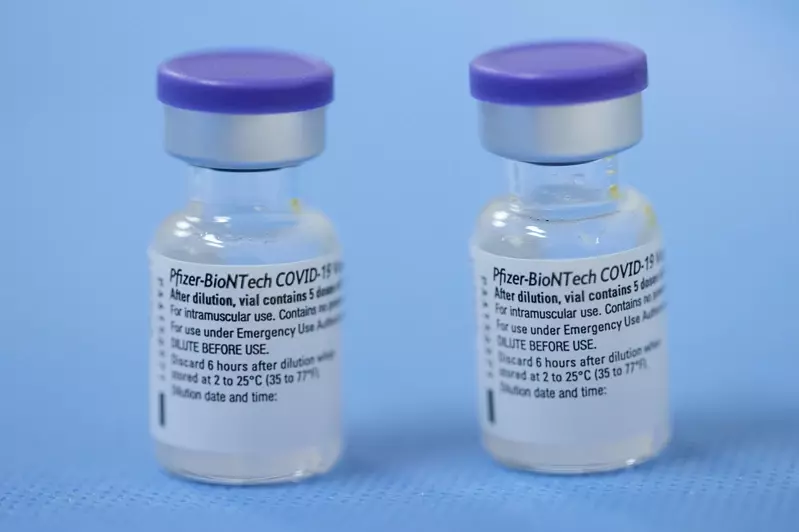
英国疫苗咨询机构今天表示,不建议替所有12到15岁者接种COVID-19疫苗,因为担忧接种后可能出现心脏发炎的罕见副作用,宁愿对健康孩童采取预防性措施。
路透报导,美国、以色列和部分欧洲国家更普遍地推动儿童接种COVID-19(2019冠状病毒疾病)疫苗,而疫苗咨询机构的这番建议,可能让英国寻求不同的做法。
不过,由于英国政府表示会请益疫苗咨询机构查看其他因素,例如对学校造成的混乱,因此尚未做出最后决定。
暑假已结束,各级学校陆续开学,许多政治人物和部分科学家担心COVID-19疫情可能会在学校扩散,进一步中断教育,已表态赞成更多孩童接种疫苗。
英国迄今累计近700万人染疫,13万3000多人病故。尽管孩童间的传染率可能很高,却鲜少出现重症。
英国疫苗接种和免疫联合委员会(JCVI)今天指出,患有潜在疾病、较易感染COVID-19的孩童则应接种疫苗。
对健康的孩童来说,接种COVID-19疫苗好处仍算小,且疫苗咨询机构表示,权衡利弊不相上下。
不过JCVI表示,想要获得更多年轻人在接种辉瑞(Pfizer)疫苗后罕见传出心肌炎长期影响的相关资讯。
心肌炎相当罕见,通常症状轻微,患者通常会在几天内康复。
JCVI成员芬恩(Adam Finn)告诉路透:「这些疫苗当然有效,在预防孩童染疫方面会有益处,但我们看到COVID-19在这个年龄层的孩童身上的重症数字其实非常少。」
芬恩还说,心肌炎的长期影响存在不确定性,对这些孩童来说利弊不相上下,让人难以安心地提供接种建议。
Covid-19: Jabs for healthy 12 to 15-year-olds not recommended
BBC
9/04/2021
The UK’s vaccine advisory body has refused to give the green light to vaccinating healthy children aged 12 to 15 years old on health grounds alone. As children are at such low risk from the virus, they decided that vaccination would offer only “marginal gain” and, therefore, there was “insufficient” evidence to offer mass vaccination for this age group. But the JCVI said the government could consider wider issues including disruption to schools. Meanwhile, an extra 200,000 teenagers with underlying conditions will now be eligible for two doses.

研究:感染冠病比接种辉瑞疫苗罹患心肌炎风险更高
文 / 廖慧婷
8/26/2021
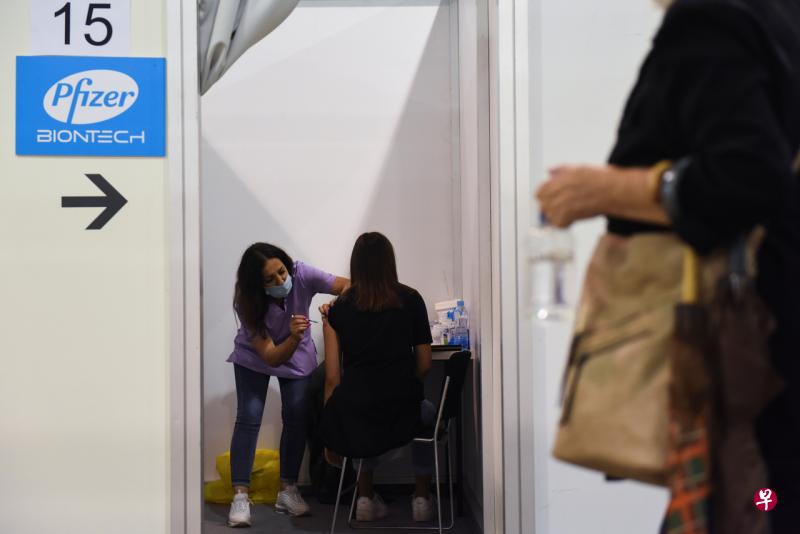
(早报讯)一项研究指出,施打辉瑞疫苗会略增心脏发炎风险,但染疫者心肌炎风险更高。
路透社报道,《新英格兰医学杂志》周三(8月25日)发表的研究报告指出,据最大医疗服务机构Clalit的数据,以色列每10万名接种辉瑞疫苗的患者中,有1到5名可能会罹患原本不会得到的心肌炎,而这个比例在感染冠病患者之中更高;每10万名确诊患者中,有11人会罹患心肌炎。
研究员对比了超过88万名接种者和相同数量的未接种者中,出现不良反应的几率。总体而言,接种疫苗的组别中,有21人罹患心肌炎,其中主要为年轻男性;而未接种组别中则有6人罹患心肌炎。
研究员说,接种者在接种疫苗后出现的不良反应大多轻微,但有些严重不良反应例如心肌炎。
研究员还分析了超过24万名冠病患者出现不良反应的几率。结果表明,感染冠病本身是罹患心肌炎的高风险因素,并也增加了出现其他不良反应的风险。
新加坡研究:疫苗对抗Delta变异株 保护力达69%
中央社 | 新加坡
7/07/2021

新加坡今天表示,当地一项研究显示,接种疫苗对防止感染Delta变异株的保护力为69%,对预防重症的效力高达93%;当局说,目前缺乏中国科兴疫苗对抗Delta变异株性能的数据。
卫生部长王乙康今天在在线记者会表示,新加坡国家传染病中心与卫生部合作,过去几个月对1000名2019冠状病毒疾病(COVID-19)确诊者的家庭密切接触者进行研究。
他指出,研究结果发现,接种疫苗对防止感染最早出现于印度的Delta变异株的保护力为69%,这与国际上的数据一致。新加坡研究数据显示,接种疫苗防止出现症状的效力为80%至90%,预防重症出现的效力高达93%。
新加坡去年底启动全国COVID-19疫苗接种计划,目前批准使用辉瑞/复必泰(Pfizer-BioNTech/Comirnaty )、莫德纳(Moderna)等2款mRNA疫苗。星国也采购中国科兴(Sinovac)疫苗,目前尚未批准使用,也未列入全国疫苗接种计划。
虽然新加坡卫生科学局尚未批准使用科兴疫苗,但首批疫苗2月底就运抵。星国当局日前开放私人医疗业者申请使用现有的20万剂科兴疫苗,为希望接种的民众施打;自6月中开打以来,吸引不少旅星的中国籍民众前往接种。
媒体问及,已接种科兴者之后可否改选接种全国接种计划使用的疫苗,新加坡卫生部医药服务总监麦锡威(Kenneth Mak)表示,有些人可能在新加坡接种一剂或2剂科兴疫苗,或有些人在外国接种一剂其他款疫苗后回到新加坡,他们仍可在全国疫苗接种计划下,接种辉瑞或莫德纳疫苗。
他强调,虽然理论上接种两种不同疫苗的效果是好的,但目前缺乏足够实际证据证明这点,当局会告知民众这点,让他们做出选择。
至于为何接种科兴疫苗者未列入新加坡全国接种人口数据中,麦锡威回应表示,政府有追踪当地接种科兴疫苗的人数,等时机合适,当局可能会提供接种科兴疫苗的人数。
他指出,目前有关科兴疫苗性能的数据不足,特别是有关对抗Delta变异株的数据不如信使核糖核酸(mRNA)疫苗多。目前有足够证据显示,接种mRNA疫苗者能获得很好的保护,因此有关接种进度统计,当局只计算接种mRNA疫苗的人数。
王乙康补充,目前尚未有医学或科学基础证明科兴疫苗在预防感染Delta变异株和避免重病的性能。不过,随着当地越来越多人接种疫苗,群体免疫也会更强,到时候,政府应该可以扩大放宽限制,让只接种一剂或尚未接种疫苗者也能参与大型活动。
此外,卫生部日前接获通报,一名16岁青少年接种一剂辉瑞疫苗后第6天在健身房举重,不久后在家昏倒,经送医急救,初步诊断为心脏骤停。麦锡威表示,目前正在调查原因,包括是否因接种疫苗引起,或与少年服用的保健品有关。
他说,这名青少年举重当时使用的重量是自身体重的一倍,是非常剧烈的运动。
16岁少年接种辉瑞疫苗六天后 健身房举重不久后心脏骤停
文 / 刘智澎
7/05/2021
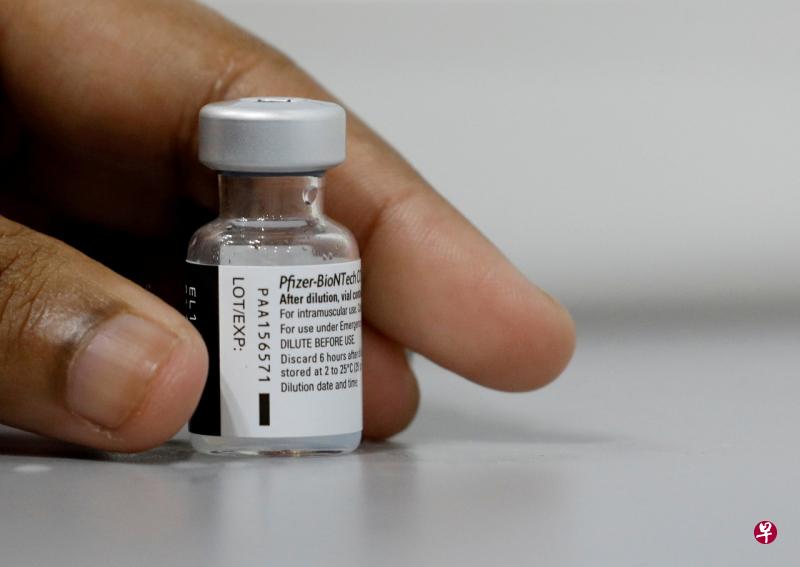
(早报讯)一名16岁少年在接种首剂辉瑞冠病疫苗的六天后,于健身房举重不久后心脏骤停。卫生部与国大医院正在调查是否与急性严重心肌炎有关。
有鉴于此,冠病疫苗专家团建议所有公众,尤其是青少年和30岁以下的年轻男性,在接种冠病疫苗后的一个星期,避免剧烈的体力活动。
卫生部今天(7月5日)发文告说,当局是在7月3日接获通报,指一名16岁新加坡籍少年于当天上午在家中昏倒,被送往邱德拔医院急诊部,傍晚被转到国大医院的加护病房。
这名少年在6月27日接种首剂辉瑞/复必泰(Pfizer-BioNTech/Comirnaty)冠病疫苗,经医护人员评估为适合接种。他在注射疫苗后接受30分钟观察,情况良好,接种五天后仍无恙。
卫生部透露,他在7月3日昏倒之前,曾在健身房举重,训练时使用非常重的重量,超过自身的体重。
少年的病况初步诊断为心脏骤停(cardiac arrest)。卫生部正与国大医院的医疗团队合作,为少年进行临床测试,以确定是否与接种疫苗或急性严重心肌炎(acute severe myocarditis)有关。
Teen suffers cardiac arrest after weightlifting session 6 days after first Covid-19 jab
FDA加注警语 辉瑞、莫德纳疫苗恐增心肌炎风险
中央社
6/26/2021

美国食品暨药物管理局今天对辉瑞大药厂和德国BioNTech共同研发的COVID-19疫苗,以及莫德纳疫苗,在注射后出现心脏发炎的罕见风险,加注警语。
美国食品暨药物管理局(FDA)表示,在提供给医护人员的疫苗数据单张做了若干修正加注警语,提醒接种后不良事件通报显示发生心肌炎和心包炎的风险增加,特别是在施打第二剂之后,以及疫苗施打几天后,出现的症状。
根据疫苗接种后不良事件通报系统(VAERS),截至6月11日,全美已施打3亿剂莫德纳(Moderna)与辉瑞(Pfizer)/BioNTech的两款mRNA疫苗中,有1200多起心肌炎或心包膜炎病例。
这些案例在男性身上、以及打完第2剂一周内发生的情况特别高些。根据美国疾病管制暨预防中心(CDC),有309名30岁以下年轻人住院,其中295人已经出院。
有几个国家卫生监管单位已经在调查,注射莫德纳和辉瑞的两款mRNA疫苗后发生心肌炎和心包炎的病例,这些在年轻男性身上发生的频率较高。
疾管中心预防接种咨询委员会(Advisory Committee on Immunization Practices, ACIP)于23日召开会议,广泛检讨关资讯之后,FDA作上述更新。
辉瑞和莫德纳公司在下班时间,并未立即回复路透的询问。
美少数年轻人接种冠病疫苗后出现心肌炎
文 / 陈慧璋
5/24/2021
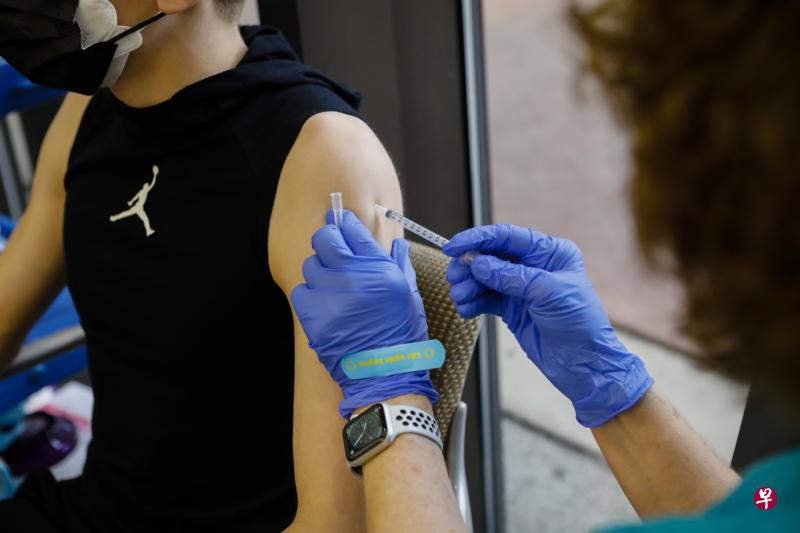
(早报讯)美国少数年轻人或青少年在接种冠病疫苗后出现心肌炎问题,美国疾病控制与预防中心(CDC)正就此展开调查,目前并未发现两者之间存在明确关联。
法新社报道,美国疾控中心指出,目前关于年轻人接种辉瑞-BioNTech或莫德纳等采用信使核糖核酸(mRNA)技术的冠病疫苗后出现心肌炎的报告“相对较少”,而且多数的症状轻微,可能同接种冠病疫苗无关。
据知,出现此情况的接种者主要是年轻人或青少年,他们在接种第二剂辉瑞-BioNTech疫苗或莫德纳疫苗的四天后出现症状,而出现症状的男性比女性多。
疾控中心补充说,在它的安全监控系统中,接种冠病疫苗后出现心肌炎的报告率与预期的基线率没有差异。
疾控中心没有发布出现心肌炎的人数或具体年龄的详细信息。
美国从5月中旬开始允许12至15岁的青少年接种辉瑞-BioNTech冠病疫苗。
研究:感染冠病后至少八个月仍有抗体
文 / 张佳莹
5/11/2021
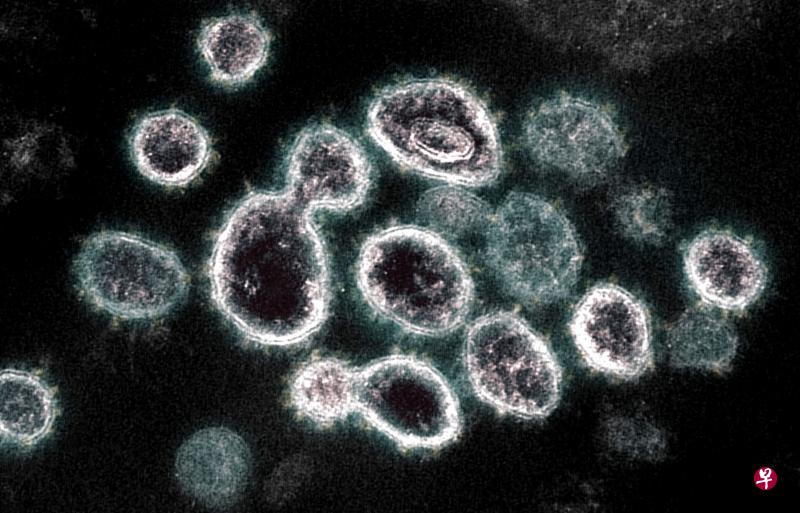
(早报讯)意大利研究员周二(5月11日)说,冠病患者在染病后,血液中至少八个月仍有抗体。
意大利米兰圣拉斐尔医院的一份声明说,“无论疾病的严重程度、患者年龄或其他疾病的存在”,患者仍有冠病抗体。
研究员和意大利国家卫生研究所(ISS)针对162名出现症状的冠病患者进行研究,这些患者在意大利去年的第一波疫情期间到急诊室接受治疗。其中三分之二的患者为男性,平均年龄为63岁;57%的患者有既往疾病,尤其是高血压和糖尿病。
研究员分别在3月和4月采集了血液样本,并在11月再次采集了幸存者的血液样本;此研究其中约29名患者已去世。
圣拉斐尔医院与意大利国家卫生研究所联合发表声明说:“中和抗体的存在虽然随着时间的推移而减少,但非常持久——诊断后八个月,只有三名患者的检测不再呈阳性。”
这项研究成果已发表于国际科学期刊《自然通讯》(Nature Communications)。此研究还强调了抗体产生在从冠病中恢复的重要性。研究员说:“那些无法在患病前15天内产生抗体的人,患上严重形式的冠病的风险更大。”
少数人接种辉瑞疫苗后出现心肌炎 以色列调查
文 / 陈慧璋
4/26/2021
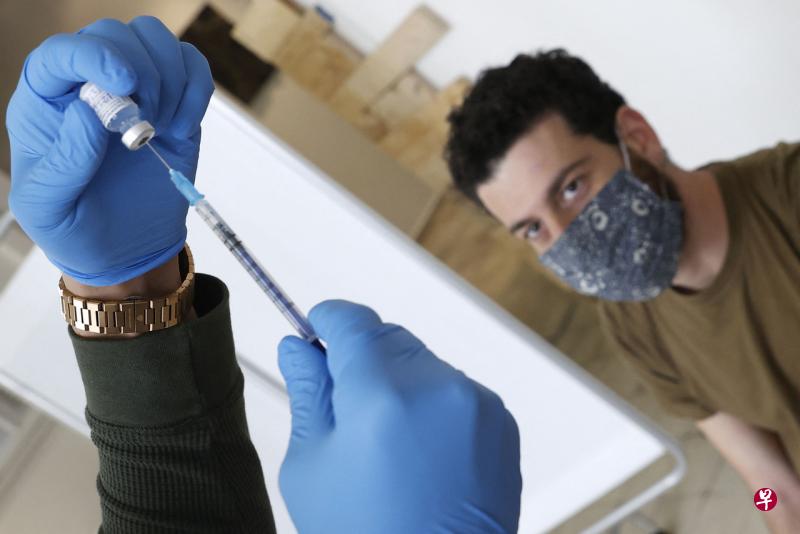
(早报讯)以色列小部分人在接种辉瑞-BioNTech冠病疫苗后出现心肌炎的症状。以色列卫生部正在就此情况进行调查。目前尚未得出任何结论。
路透社报道,以色列冠病应对协调员阿什星期天(25日)表示,一项初步研究显示,在超过500万名接种辉瑞-BioNTech疫苗者中出现了数十起心肌炎个案。
这种情况大部分是在接种第二剂疫苗后出现,而且多出现在30岁以下的年轻人身上。
他说,以色列卫生部正在研究心肌炎的发病率是否过高,以及它是否可以归因于疫苗。
辉瑞表示对有关问题知情,并强调,该公司定期和彻底审查所有不良情况个案,并没有观察到心肌炎的发病率高于一般人口中可预见的发病率。
以色列已有500多万人接种了辉瑞-BioNTech冠病疫苗。





